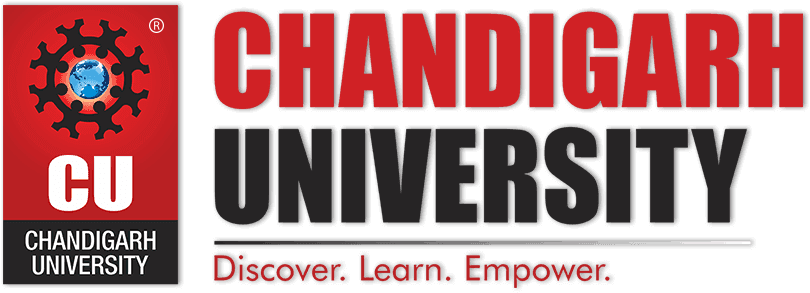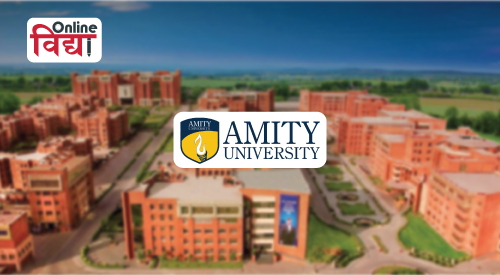
Online M.Sc
Link copied to ClipboardOnline M.Sc or Master of Science means pursuing postgraduate science degrees through distance education.
Highlights
Offered By - 5 Universities
Course Duration - 2 years
Course Eligibility - Successful completion of a Bachelor's degree in relevant science subjects with minimum 50% aggregate marks typically. Relaxation for reserved categories.
Get more information about Online M.Sc
Fill in these details and unveil the power of Online M.Sc
Your Personal Data is safe with us.
Online M.Sc :Course details, Eligibility, Fees, Duration
Introduction
Online M.Sc or Master of Science means pursuing postgraduate science degrees through distance education. Due to COVID-19, online M.Sc programs have gained immense popularity among students. They offer flexibility to gain advanced academic knowledge and research skills in Science/Tech specializations without attending physical classrooms.
Top education platforms like Coursera, EdX, and UpGrad provide certified online M.Sc courses in Data Science, Computer Science, Statistics, Finance, etc. Reputed universities worldwide also offer online M.Sc degrees. It enhances employability through niche roles like Data Analyst, Business Analyst, Actuary, etc. Online M.Sc provides a convenient and cost-effective pathway to career advancement and higher studies.
Course Details
The online M.Sc curriculum covers advanced theoretical concepts, research methodologies, analytical techniques, lab simulations, and data analysis projects. Core subjects include Probability, Statistical Testing, Technical Writing, Subject-specific Advanced Knowledge, etc. Electives allow customization across disciplines—the pedagogical focus on building critical thinking, research aptitude, and technical competencies. Assessments are through online assignments, quizzes, case studies, and capstone projects.
The learning is facilitated through pre-recorded videos, live online classes, discussion forums, and LMS platforms. Students can access course materials, video lectures, and e-libraries anytime. Reputed online platforms provide dedicated academic counselling as well. The degree awarded is equivalent to on-campus programs.
Key Highlights
Some of the major highlights of the M.Sc degree are:
- Provides specialized and advanced knowledge in specific science and technology domains. Students can gain expertise through subjects like Data Science, Biotechnology, Applied Physics, etc.
- Inculcates strong research skills through dissertation projects and methodology coursework. Develops ability to conduct independent research.
- A flexible course structure enables choosing electives from other disciplines and fosters interdisciplinary knowledge.
- Opens up specialized career roles like Scientific Officer, Actuary, Technical Writer, Lecturer, etc.
- Globally recognized qualification employers value in IT, Banking, Research, Education, etc.
- Option to study full-time, part-time, or through online/distance mode.
- Pathway for higher academic pursuits like M.Phil, PhD, and research careers.
Eligibility Criteria
The main eligibility criteria for admission to M.Sc programs are:
- Successful completion of a Bachelor's degree in relevant science subjects with a minimum 50% aggregate marks typically. Relaxation for reserved categories.
- Bachelors from a recognized university. Some institutes mandate specific universities.
- Having mandatory academic prerequisites like B.Sc for M.Sc Physics, B.Tech for M.Sc Engineering.
- Qualifying in entrance examinations like GATE and GMAT as specified. Scores considered for admission.
- Minimum percentages in relevant undergraduate subjects. For example, 55% in Physics subjects for M.Sc Physics.
- English language proficiency scores are needed for international universities.
- Academic aptitude, mathematics, statistics, and research capabilities are preferred and assessed during admission.
- The minimum qualifying age limit is 20 years. Relaxed for working professionals.
- Additional criteria like interviews, statement of purpose, etc.
Specialization in Online M.Sc
| Mathematics | Data Science |
| Information Technology | Applied Finance |
| General | Business Analytics |
| Computer Science |
Course Fee
The academic fees for M.Sc programs within India range between INR 1-6 lakhs on average depending on factors like:
- Type of institute - IITs, central universities, private colleges, or autonomous institutes. Subsidized fees at IITs and government institutes.
- Specialization chosen - Advanced domains like Biotechnology and Data Science have higher fees.
- Conventional subjects like Physics, Chemistry have lower fees.
- Program duration - 2-year programs are costlier than 1-year programs.
- Base tuition and additional costs like hostel charges, exam fees, etc.
The average cost of M.Sc programs at premier global universities is INR 15-25 lakhs owing to higher international student fees. However, scholarships and education loans can support deserving students.
Course Duration
The full-time classroom M.Sc is usually a 1 year or 2 years program. This duration is divided into semesters, trimesters, or terms based on the institute's academic calendar:
- 2-year M.Sc is usually four semesters over two years - Odd and Even semesters, each being 5-6 months.
- 1-year M.Sc is completed in 2 semesters of 6 months each within a year.
- Semester system - Each semester has 15-18 weeks of teaching and two weeks of exams.
- Trimester system - 3 terms per year of 4 months each with 11-13 teaching weeks and 1-week exams.
Career Prospects
An M.Sc degree opens up a broad spectrum of lucrative career opportunities and exciting professional roles for students across diverse industries.
Some of the major employment sectors and job profiles for M.Sc graduates include:
- Information Technology - Software Developer, Data Scientist, Business Analyst, Cloud Architect, Cyber Security Analyst
- Engineering & Technology - Product Design Engineer, Automation Engineer, Technical Specialist, IoT Architect, Renewable Energy Consultant
- Banking, Finance & Insurance - Actuary, Investment Analyst, Financial Risk Modeler, Accountant, Financial Quant
- Management & Strategy - Management Consultant, Business Development Professional, Project Manager, Operations Lead
- Research & Development - Research Scientist, Medical Researcher, Agricultural Scientist, Astrophysicist, Nanotechnology Researcher
- Education & Training - Lecturer, Subject Matter Expert, Instructional Designer, Scientific Content Writer, Technical Journalist
- Public Sector & Government - Scientific Officer/Specialist in organizations like DRDO, ISRO, NPCIL, forensic labs
- Healthcare & Pharmaceuticals - Medical Coder, Pharmacovigilance Associate, Clinical Data Analyst, Biostatistician
Why Choose this Course?
Below are some of the most compelling reasons to pursue an M.Sc degree:
- Develops specialized knowledge and advanced skills in niche science and technology domains, which employers value. Makes candidates highly employable for technical and analytical roles.
- A globally recognized and reputed qualification preferred by recruiters and universities worldwide for higher education.
- Flexibility to study full time on campus or part-time through online/distance mode as per individual needs and constraints.
- It is an excellent pathway to pursue advanced academic degrees like M.Phil, and PhD and build research expertise in the chosen field.
- Rigorous curriculum, research projects, and assignments impart critical thinking ability, out of the box problem solving attitude, and scientific temperament.
- Hands-on practical training through lab experiments, tools, data analysis, and modelling strengthens application capabilities.
- Opportunity to take up interdisciplinary electives and exposure to real-world practices through internships.
- Develops openness to new ideas.
- Builds high-level technical and soft skills like research, analytical reasoning, scientific writing, and communication that are invaluable for higher studies and industry.
Course Scope in India
The career scope for M.Sc degree holders within India is steadily growing across diverse industry sectors such as:
- Information Technology sector with increasing demand for qualified professionals in niche domains like data science, artificial intelligence, machine learning, and cloud computing for technical and analytical roles.
- Exciting openings in engineering research & development, product design, testing, automation, and core engineering positions in sectors like automobiles, aerospace, electronics, telecom, energy, and more.
- Public sector research organizations and labs such as DRDO, ISRO, NPCIL, CSIR, etc. routinely recruit M.Sc graduates as Scientific and Technical Officers through GATE and other competitive exams.
- Highly reputed government sector tech organizations like ISRO, NPCIL, BARC, and DRDO offer excellent career growth and learning opportunities in core engineering and science domains.
- Banking, Financial Services, and Insurance sectors require qualified Actuarial Science, Financial Risk, and
- Investment Analysis professionals where M.Sc Mathematics/Statistics graduates are preferred.
Also Read: MSC: Full form, Admission 2024, Fees, Syllabus, Entrance Exam & Career Scope
Frequently Asked Queries
The core curriculum is similar, but the online M.Sc focuses more on recorded lectures, virtual labs, online assessments, and self-paced learning. On-campus M.Sc has more classroom teaching and in-person interactions.
Dedicated placement support is limited, but online career guidance, resume building, mock interviews, internships, and alums/industry networks assist in off-campus jobs. Efforts are needed from the student's side as well.
IT, R&D, Testing, Pharma, Healthcare, and Education sectors. Roles like Data Scientists, Software Developers, Medical Coders, Lecturers, etc. Starting salaries INR 3-6 lakhs p.a. Research and academic careers are also possible.
Meet Our Counselling Experts
Get 100% Free Career Counseling










